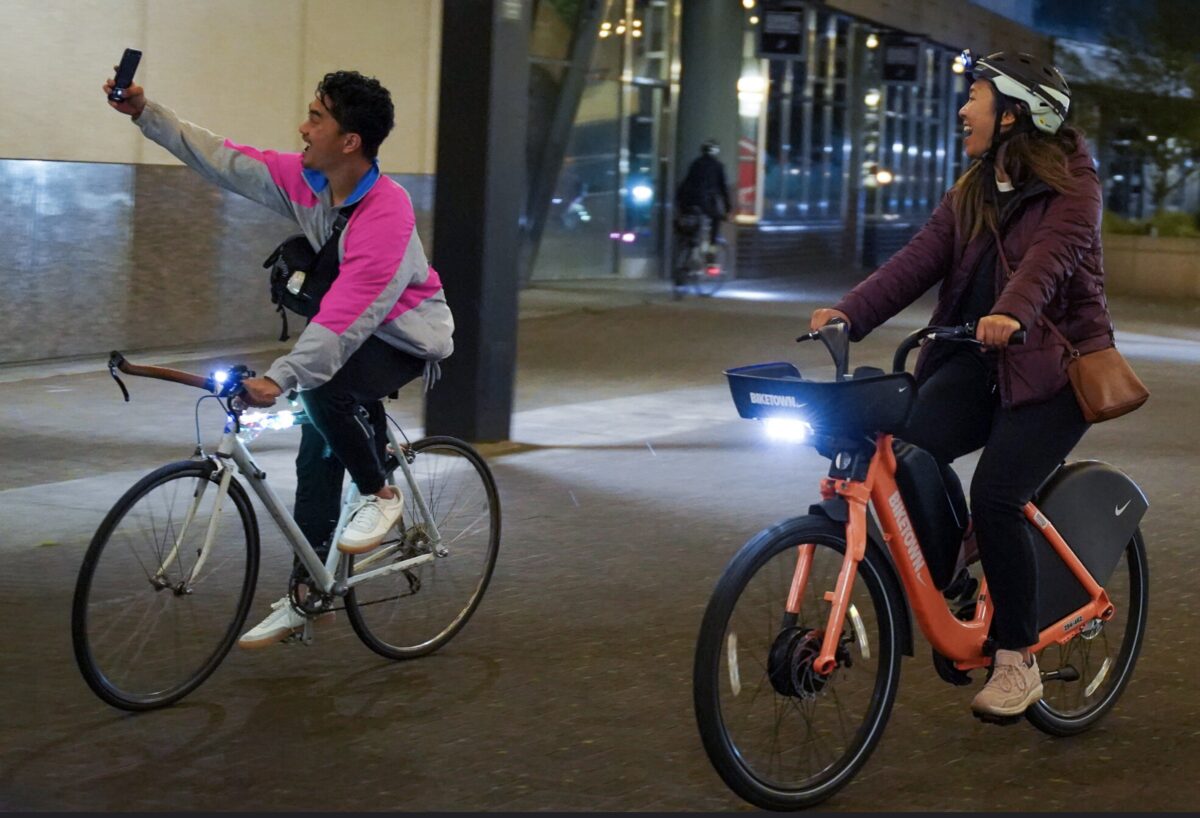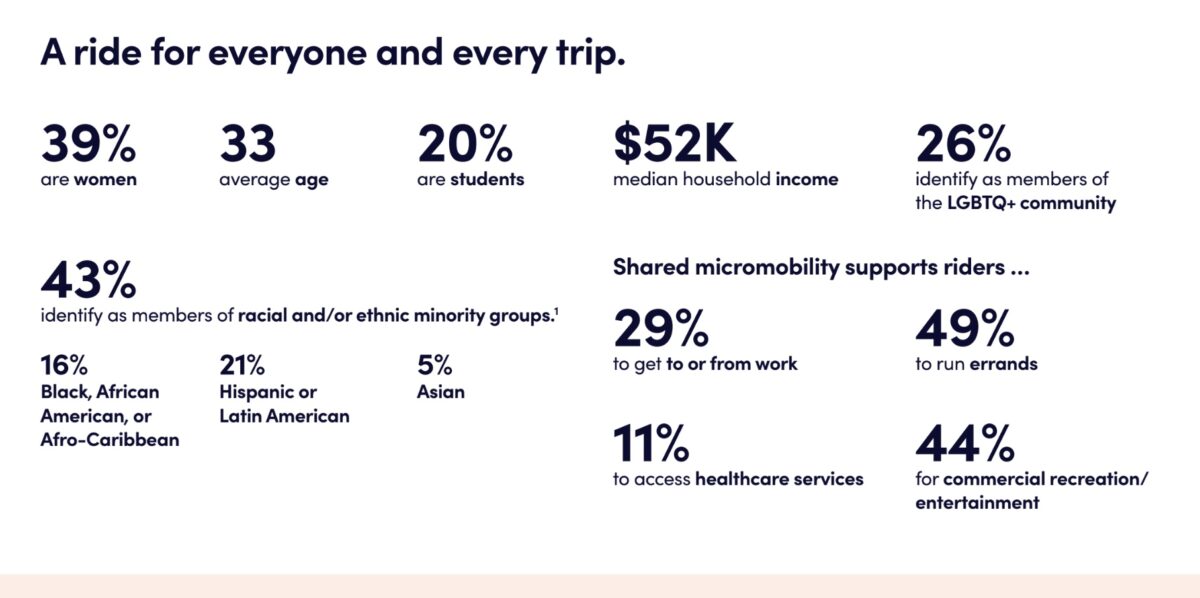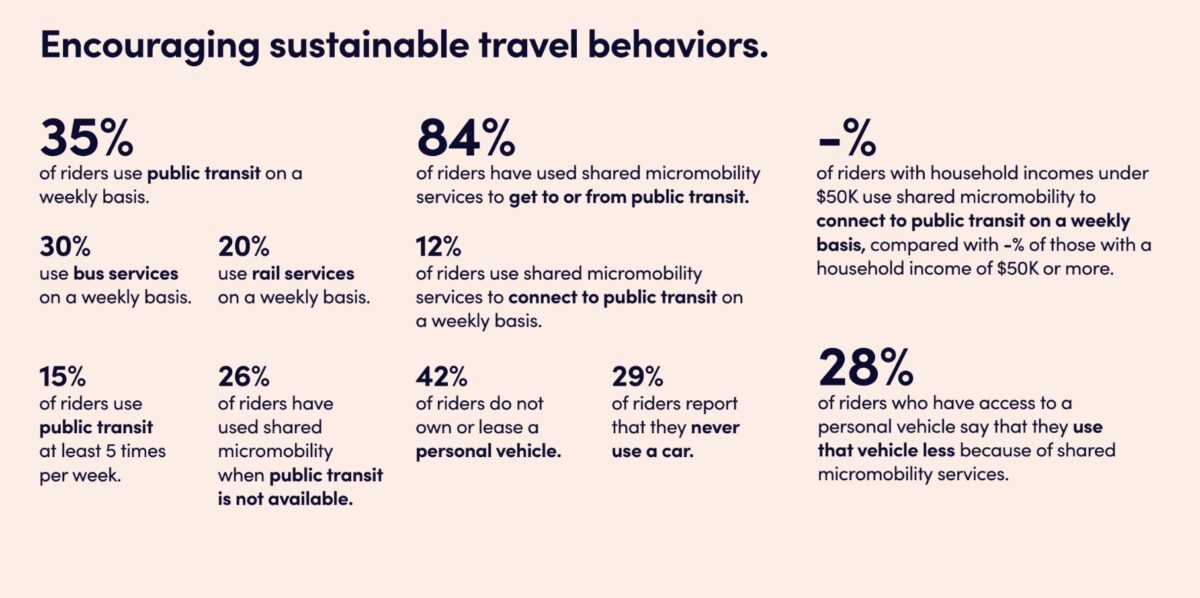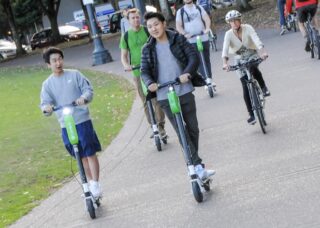
A report released today by Lyft (the operator of Biketown and other shared micromobility systems across the country) shows there’s been a boom in shared scooter and bike systems in Portland and in other cities nationwide — and the people riding this wave are increasingly more diverse.
“Lyft bikeshare members rely heavily on public transit and more than two-thirds do not own or lease a personal vehicle.”
— from the report
According to the 2022 Lyft Multimodal Report, over 37,000 new riders tried Biketown in 2021. And according to data we already have for 2022, this number is likely to be even higher on next year’s report: PBOT shared there was a 112% increase in Biketown ridership from January 1 – February 1 of this year compared to the same period in 2021. And just last weekend, when Biketown went fee-free for three days to celebrate Earth Day, the bike share service set a new one day trip record of 3269, which is almost 1000 more rides than the 2021 one day trip record of 2465.
What accounts for the micromobility enthusiasm? For one, these services have matured. They’re more accessible and the area they cover is larger. Biketown went electric near the end of 2020, increasing its service area by 50% at the same time, which was a game-changer.
We recently shared some things people working with shared micromobility in Portland are doing to make services like Biketown and e-scooters more accessible, and from the data, the results of their efforts look promising. Across the country, rides in low-income areas increased by 65% since 2020, a move attributed in part to broader coverage.
The two graphics below show stats from the Lyft report:
Advertisement
The Lyft report also showed that of all Portlanders who used Biketown in 2021, 43% identify as members of racial and/or ethnic minority groups. 16% of them identified as Black, African
American, or Afro-Caribbean. That’s a much different picture than Portland as a whole where the population is about 77% white and only about 6% Black.
Scooting in Waterfront Park.All of this new ridership means travel behaviors have shifted, too: a substantial amount of people are reporting Biketown is making them think twice about driving a car. Lyft reports 28% of people who have access to a car drove it less because of access to Biketown.
The Lyft report also offers advice for what cities can do to continue to see even more progress in shared bike and scooter usage. They suggest cities build more protected infrastructure, install more stations to improve reliability and access, electrify stations so the devices can charge on their own and continue to explore how public-private partnerships (like the one between PBOT and Lyft) can enhance these programs.
Another key takeaway of this report is how our transit systems play a key role. “Findings from the 2022 Lyft Multimodal Report continue to underscore the important relationship between micromobility and public transit. Lyft bikeshare members rely heavily on public transit and more than two-thirds do not own or lease a personal vehicle,” the report states.
As these systems mature and become a part of our transportation foundation, this report underscores their value even more and validates calls from advocates to expand and improve them with funding beyond private sponsorship dollars. Check out the full report here and the Biketown supplement here.




